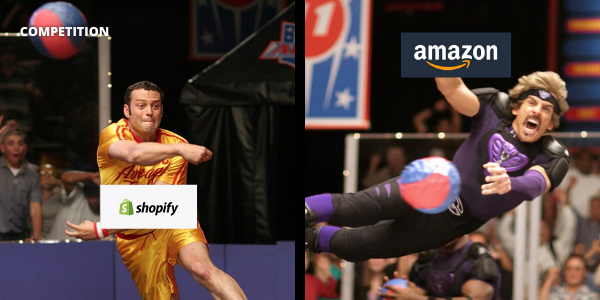Get smarter than your boss in 3 minutes with today's business news.
🍟 Maccas breaks the golden #ad rule
💔 Alipay could be going through a breakup
💰 Amazon is taking on Shopify with a new POS system
Hey hey Flux Fam!
Have you been playing the Flux daily 1 min quiz?!
A $100 JB Hi-Fi voucher is up for grabs. May the smartest - and fastest - Fluxxer win.
🍟 Maccas breaks the golden #ad rule
💔 China wants to break up Alipay
💰 Amazon is taking on Shopify with a new POS system
Wanna know how much a ticket to the Met Gala costs, Flux fam? You're looking at around US$35,000. And even though only the rich and famous attend, it turns out they prob don't pay. Fashion brands tend to buy tables for around US$200-300k, and then invite celebs for free.

Background: McDonald's - aka Maccas, aka Mickey D's - is arguably the most famous fast food chain in the world. In Oz, there are around 970 Maccas restaurants, and more than 1.7 million customers visit restaurants every. single. day.
What happened: They've made it pretty far on their own, but that doesn't stop them partnering with major celebs like Travis Scott or Michael Jordan...or smaller influencers, like SA radio station SAFM. Unfortunately, it's the little guys who have got them in trouble.
What else: An SAFM radio host shared a pic of some gifted Maccas on his Instagram, without saying #ad or #sponsored. Maccas argued it wasn't spon-con - it was just the radio host posting some free food. But, the Ad Standards ruled Maccas broke the Code of Ethics by not adhering to "distinguishable ad" rules.
💡Influencer marketing has become serious business. In fact, 49% of consumers depend on influencer recommendations when purchasing a product. As influencer marketing becomes more popular, the Ad Standards is cracking the whip even harder.
💡A Code of Ethics launched earlier this year forces influencers to be treated like other traditional advertisers, which means they need to disclose commercial relationships with a #ad or #sponsored.
💡So far the Ad Standards has really come for influencers. Bachie OG Anna Heinrich got into hot water over forgetting to write #ad, and so did beauty blogger Rosalia Russian. But now, we're starting to see the brands behind the partnerships cop heat. There'll be more where this came from.

Background: Alipay is a mobile payments superapp primarily used in China. And this baby has more parts than The Fast & The Furious films.
What happened: You can make in-store and online purchases via the app. And it's got a loans business too, with two lending units: Huabei (a credit card) and Jeibei (unsecured loans).
What else: The Chinese Government reckons Alipay has too much power - aka a monopoly - over the payments system. So, it wants to break off its lending unit...and hand over its user data to the Government. It's all part of its plan to de-tycoonify China.
💡De-tycoonification is all about limiting the power of Chinese tech companies. And by getting big tech to turn over their data, the Chinese Government is hoping monopolies will crumble harder than Novak Djokovic at the US Open final.
💡China's growth has kind of hit pause...or at least slowed down. And the Government reckons anti-monopoly regulation will increase the country's productivity and help China's economic growth.
💡But also, it helps the Government maintain control in a Communist society. And, it ensures that wealthy entrepreneurs (*cough* Jack Ma *cough*) don't start wielding their power in the country.

Background: Amazon is the most popular shopping app in the US. and it's got a huge 300 million users globally (double the population of Russia). So it's fair to say it's got customers down pat. Merchants? Not so much.
What happened: Enter: Project Santos. Amazon created this secret taskforce last year, with one mission: to steal Shopify's small biz merchant customers. And it's first mission was to build a point-of-sale (aka POS) system to sell into merchants (like retailers).
What else: The new POS system would handle both in-store and online transactions. And it would have Amazon checkout options, and link to other Amazon services like Prime memberships or Flex delivery.
💡Amazon founder Jeffy B actually named Shopify as one of Amazon's strongest competitors. It's because Shopify offers small businesses the tools to build their own direct-to-consumer e-commerce sites, rather than sell through Amazon.
💡That's where Project Santos started, but it's not the only place it's going. Amazon wants to attract small biz sellers to its online marketplace...but it also wants to tackle bricks-and-mortar businesses.
💡If the POS system does launch, Amazon will have an edge over Shopify in that it could be an all-in-one system for e-commerce sites...but it's also got its foot in in-store businesses.
Sign up for Flux and join 100,000 members of the Flux family